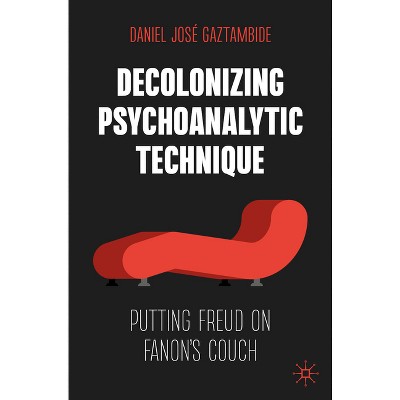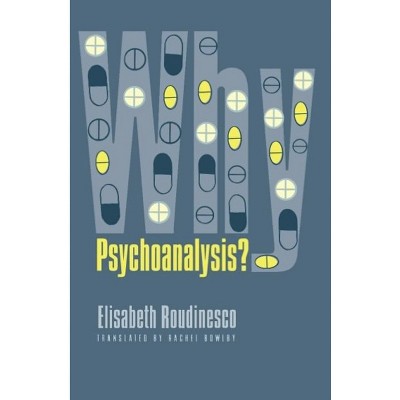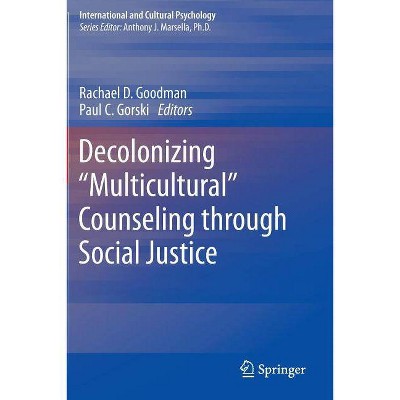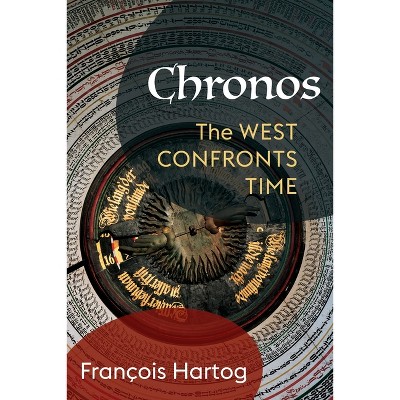Sponsored

People's History of Psychoanalysis - (Psychoanalytic Studies: Clinical, Social, and Cultural Conte) by Daniel José Gaztambide (Paperback)
In Stock
Sponsored
About this item
Highlights
- From Freud and the first generation of psychoanalysts in the late 1800s to Jesuit priest Ignancio Martin-Baro's writings in the 1970s, Daniel José Gaztambide introduces readers to the social justice leaders and movements that have defined the field of psychoanalysis and made it relevant to all classes and races.
- About the Author: Daniel José Gaztambide is visiting assistant professor in the Department of Psychology at the New School for Social Research and practicing psychologist.
- 270 Pages
- Psychology, Social Psychology
- Series Name: Psychoanalytic Studies: Clinical, Social, and Cultural Conte
Description
About the Book
From Freud and the first generation of psychoanalysts in the late 1800s to Jesuit priest Ignancio Martin-Baro's writings in the 1970s, Daniel José Gaztambide introduces readers to the social justice leaders and movements that have defined the field of psychoanalysis and made i...Book Synopsis
From Freud and the first generation of psychoanalysts in the late 1800s to Jesuit priest Ignancio Martin-Baro's writings in the 1970s, Daniel José Gaztambide introduces readers to the social justice leaders and movements that have defined the field of psychoanalysis and made it relevant to all classes and races.Review Quotes
Dr. Gaztambide's timely, fascinating, scholarly, and highly readable book revives an aspect of the history of psychoanalysis that is often forgotten: its involvement in the fight for social justice. The author has unearthed the works of several early psychoanalysts and analytically informed clinicians whose ideas were instrumental in the formation of psychoanalytic theory and practice, but who are not frequently discussed in our field.
A cogent combination of psychoanalysis and liberation theology that produces an original psychology of liberation. Channeling the contributions of Freud, Fanon, Freire and Martín-Baró, A People's History of Psychoanalysis gives a compelling account of the ignored emancipatory potential of psychoanalysis. Gaztambide's innovative book is a must-read for anyone interested in an ethics of social justice that gives the unconscious its authentic political dimension.
A People's History of Psychoanalysis: From Freud to Liberation Psychology contributes mightily to the healing of psychoanalysis' self-inflicted wound: the amputation of issues of social justice from those of psychological well-being. Daniel Jose Gaztambide redresses depth psychology's amnesia regarding early psychoanalytic work at the intersection of psyche and community. By integrating the histories of liberation psychology and psychoanalytic thought, Gaztambide points to a future where those committed to psychological thriving must attend to issues of social justice.
Daniel Jose Gaztambide offers a welcomed rethinking of the place psychoanalysis has held in struggles for social justice. With compelling evidence and detail, Gaztambide charts a network of influences that extend from psychoanalytic figures like Sigmund Freud to founders of Liberation Psychology like Frantz Fanon and Paulo Freire.
About the Author
Daniel José Gaztambide is visiting assistant professor in the Department of Psychology at the New School for Social Research and practicing psychologist.











